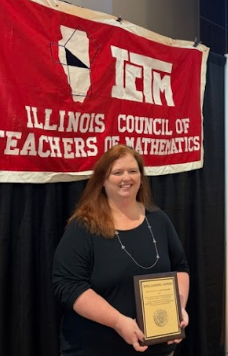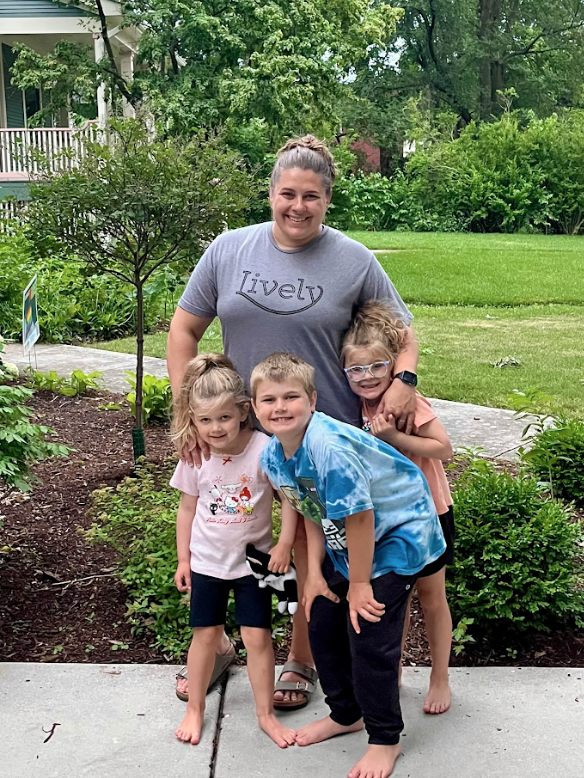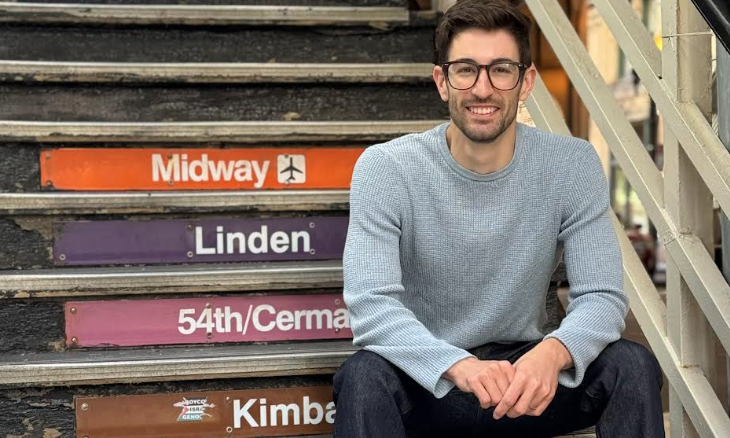Six months ago, a group of migrants from Central and South America were liv- ing in tents outside a police station near the Oak Park border. Now they are living in their own apartments, with their rent paid for a year.
Local volunteers, working as the Resettlement Task Force, have worked tirelessly in recent months to help migrants find, set up and move into full-time housing. “For every family resettled, it probably took between seven and nine different volunteer touchpoints,” said Task Force volunteer Brynne Hovde.
Volunteers took on different tasks including finding available housing, contacting landlords, getting translated leases to migrants, installing furniture and housewares, setting up utilities and moving people into their new apartments. “We had amazing volunteers who poured hours and hours into this,” Hovde noted.
According to Hovde, a total of 201 people were resettled by the task force as of April 9. The goal of the task force was for each household to receive 12 months of rental payments from funds provided by the Village of Oak Park and private donors. “As the current federal law stands, it’s a long wait time to get work authorization,” said Hovde. “That’s a reason these 12 month leases are so important.”
Prior to receiving village funding, the task force connected individuals and families with alternate housing options – such as resettling in communities far outside of Chicagoland with lower costs of living, or taking advantage of free offers from church parsonages.
Just six months ago, the migrants’ situation was much more precarious.
In October 2023, migrants were living in tents in and around the Chicago Police Department’s 15th District station. Frigid snowy weather on Oct. 31 meant they were exposed to cold many of them had never experienced.
Local volunteers had already been assisting migrants for months. When the cold weather hit, they worked with in- creasing urgency to get the migrants indoors.
According to a timeline published on the village of Oak Park’s website, “Shortly before 10:30 p.m., and without prior knowledge, the Oak Park Police Department received a phone call from a volunteer seeking to assist asylum-seek- ing migrant families that were based at the Chicago Police Department’s 15th District station and were seeking indoor shelter.”
This call set off a chain of events that eventually brought approximately 200 migrants to Oak Park, at first to local churches including Good Shepherd Lutheran Church at 611 Randolph St. By Nov. 6, most were living in rooms at The Carleton Hotel and the YMCA of Oak Park, where they remained until Feb. 29.
The migrants’ temporary housing was funded through government grants including the Supporting Municipalities for Asylum Seeker Services (SMASS) grant and American Rescue Plan Act (ARPA) funds.
When this arrangement ended on Feb. 29, another shelter was opened at the former St. Edmund’s Parish School at 200 S. Oak Park Ave., funded by a grant from the state of Illinois.
The St. Edmund’s shelter was slated to house migrants through June 30. However, as of April 2, everyone who had been staying there had moved into apartments, according to Jack Crowe, volunteer executive director at The Oak Park Family Transitional Shelter at St. Edmund’s.
Only one temporary shelter still remains in operation in Oak Park, at the Euclid United Methodist Church, located at 405 S. Euclid Ave. It has been hosting five families totalling 17 people, and is not operated by the village of Oak Park.
Euclid Methodist opened its doors on Nov. 10 to migrants who had arrived at Good Shepherd Church after village arrangements were made for the Carleton and YMCA, so they were not included in the count. Leading volunteer Dot Lamb- shead Roche anticipated that all five families will be able to move into apartments in the coming days. “I would say by May,” Roche said. They have also begun to receive assistance from the Resettlement Task Force, and will receive a year’s worth of rent payments like the migrants moved out of village shelters have.
Support will continue to be provided to migrants who have left the shelters. “We’ve worked to the best of our abilities to provide wraparound services,” said Roche. These services have included legal clinics, childcare and English as a second language classes.
“We’ve always worked directly with the residents,” she said, “We anticipate we will continue to work together even in this next phase while they are living independently.”
At St. Edmunds, although the shelter has closed, the Migrant Ministry located in the same building remains open. “That’s been providing probably over 5,000 winter coats over the past winter to recently arrived migrants,” said Crowe. “Providing clothing, toiletries, English as a second language training, that will continue to go forward.”
Meanwhile, the Resettlement Task Force has partnered with Rincon Fam- ily Services, a nonprofit serving Latino families in the Chicago area. Rincon has begun to help the newly housed migrants connect to resources in their new neighborhoods.
Although their work is nowhere near finished, this is a major step forward for Chicagoland’s newest residents, and the many volunteers who have helped them along the way. “It’s a meaningful moment for Oak Park,” said Hovde. “I’m very grateful to have been able to work on part of that team.”





